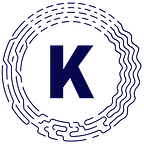7 Weird, Wacky and Potentially Wonderful Applications for Blockchain
Author: Moe Levin
Ending global poverty. Eradicating graft and corruption in humanitarian aid. Fighting global climate change. Blockchain is positioned for incredible promise, but it could also change our day to day living. Here are seven weird, wacky, and potentially wonderful applications for blockchain:
- Thanksgiving Turkey Tracker. Consumers can now get to know the exact family farmer who raised their Honeysuckle White® brand holiday turkey, through an innovative blockchain solution. Consumers in select markets can just text an on-package code to access the farm’s location, view the farm story, see photos, and read a message from the farmer.
While it seems gimmicky, it actually gives a peek into the future of food safety, allowing producers, manufacturers, and consumers to precisely trace their food origins.
2. Buy and sell shares of time. The concept was first “coined” (no pun intended) by tech worker Evan Prodromou, who is selling his time on the Ethereum blockchain. “That means you can buy and sell my time in hourly chunks called Evancoin and use that time any way you’d like,” he writes on his website.
Look for more peer-to-peer apps like Evancoin as freelancers take advantage of this new way of marketing themselves.
3. Seed-to-sale tracking of legal marijuana. As more countries and states legalize recreational marijuana, governments have a vested interest in tracking where different strains of the crop are raised and distributed. IBM has presented a position paper to the Canadian government, advocating blockchain as the answer.
Nuvus Blockchain says in its whitepaper that tracking will “provide transparency on the type, potency and potential benefits of different strains and their effects on the human body, adding significant value to the commodity across uses, research and industries.”
4. Create your own supercomputer. Golem is a global, open-source, decentralized supercomputer available to anyone. By harnessing the combined power of users’ machines, from PCs to entire data centers, it provides cheap and flexible access to computing power.
“Golem is a global, open-source, decentralized supercomputer that anyone can access. It is made up of the combined power of users’ machines, from PCs to entire data centers.Golem is capable of computing a wide variety of tasks, from CGI rendering, through machine learning to scientific computing. Golem’s limitations are only defined by our developer community’s creativity,” the site says.
No longer will supercomputing be limited to universities, governmental organizations, and big data centers. Anyone around the world can harness the same computing power as the US Department of Energy or China’s National University of Defence Technology.
5. Leveling the Music Industry. Founded by musician Imogen Heap, Mycelia is “a growing collective of creatives, professionals and lovers of music” with a mission to create a sustainable and vibrant music ecosystem by providing an easy way for others to license and collaborate with music. The goal is to “fair remuneration, transparency, and a multitude of new business opportunities for artists,” writes Heap.
Look for similar initiatives for industries from fashion to fiction in the future.
6. Authenticate your Kanye sneakers. Similar to the turkey project, Chronicled, a Silicon Valley-based startup, announced a new method to verify the authenticity of high-end sneakers. Each pair includes a smart tag containing a PKI chip which hosts an encrypted private key with the public key stored on Ethereum’s blockchain.
“Buyers can easily verify authenticity by scanning the tag with their phone, prompting an app download which further allows for registration of the sneakers and their owner’s details,” writes Andrew Quentsin for CoinJournal.
Other high-end apparel and accessory manufacturers are sure to follow suit, to crack down on the estimated half-a-trillion-dollars per year counterfeit goods market.
7. Prove you graduated. MIT is using the blockchain to issue, display, and verify digital credentials earned in academic courses. If all educational institutions followed suit, you’d never have to request another copy of your college transcript.
But the benefits go beyond efficiencies, say members of the MIT Media Lab responsible for the project. “When certification systems are not working well, the consequences can be more than just inefficient… they can be disastrous, such as when a refugee is unable to provide a certificate of completed study, and is therefore prevented from continuing her education.”
While some of these applications may at first glance look trivial, look deeper. They represent considerable shifts in the way information is stored, shared, and verified. These seemingly inconsequential projects are omens of huge things to come.
Moe Levin is responsible for the first global bitcoin conference in Amsterdam and is the founder of the North American Bitcoin Conference as the CEO of Keynote — a global events company. Levin serves as an advisor and board member for a number of blockchain companies including Unsung and RSK Labs. He is also a Co-Founder of Kingsland University — School of Blockchain, the world’s first accredited blockchain training program. To find out more about how the Kingsland University — School of Blockchain. Find out more about Kingsland’s leading-edge education at KingslandUniversity.com
